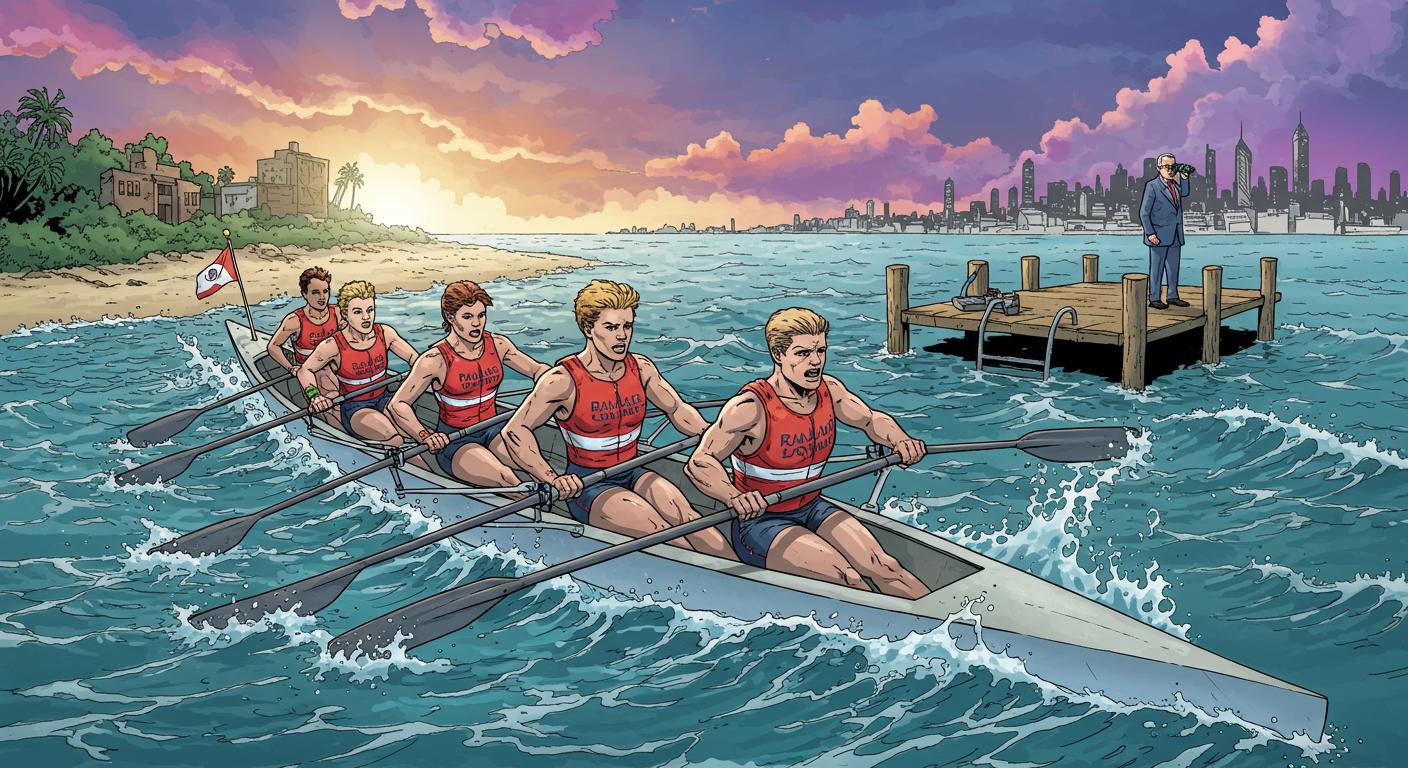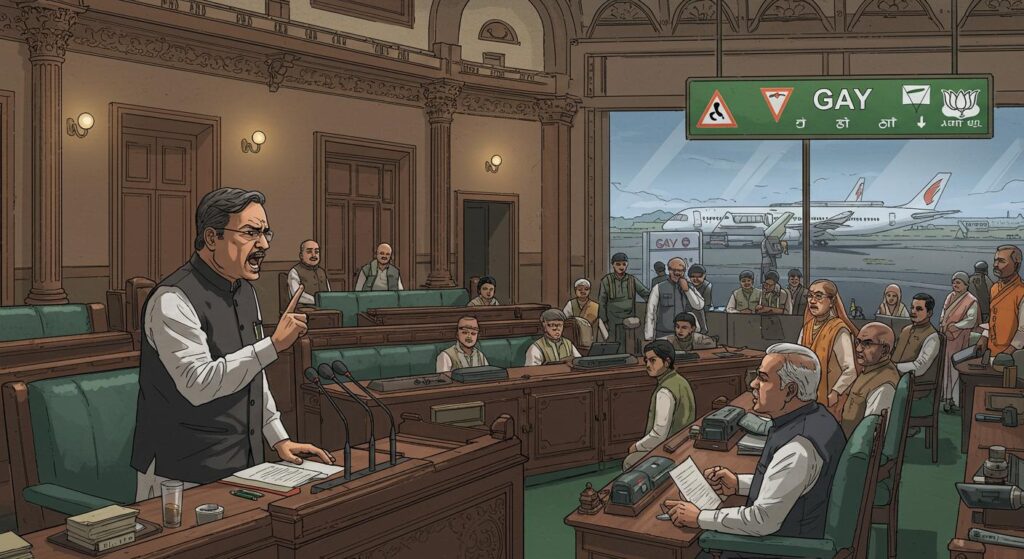There are some news stories you stumble across where you have to pause, reread, and quietly ask yourself, “Wait, seriously?” The tale of how a group of charity rowers ended up mistaken for a covert migrant crossing—by an actual member of Parliament, no less—is a prime candidate for that particular shelf.
Misidentification on the High Seas (of Norfolk)
Let’s set the scene, as BBC News recounts: Independent MP Rupert Lowe spotted a mysterious boat near the wind turbines off Great Yarmouth, convinced, it seems, that he was bearing witness to an incursion of “dinghies” associated with the country’s ongoing “national crisis.” He promptly posted a photo to X—because posting comes first—and let followers know, in all-caps urgency, that authorities had been informed.
In reality, the “unknown vessel” was, perhaps inevitably, something far less headline-grabbing (though arguably more admirable). Both BBC News and Great Yarmouth Mercury detail how the boat in question was actually crewed by four charity rowers—ROW4MND—attempting to traverse from Land’s End to John O’Groats, raising money for motor neurone disease. Among them, Mike Bates stands out as both a former Royal Marine and a British record-holder for rowing alone across the Atlantic. Not exactly your run-of-the-mill ne’er-do-wells.
Vessels, Vigilance, and Viral Mishaps
According to the Mercury, the story quickly evolved from local curiosity to mild spectacle: Lowe’s office contacted lifeboat crews and the Coastguard to check out the suspicious craft, prompting a lively show on the beach and heads craning out to sea. Crew members described “almost vigilante-style” attention, with curious locals gathering, flashing torches, and even a drone buzzing overhead. Matthew Parker, a member of the rowing team, said the situation left them baffled, especially as authorities arrived and the questioning escalated. The Mercury also notes that it was only after several hours—and a helpful intervention using marine tracking data shared on social media—that the charitable nature of the rowers was widely established.
In an extra twist, Larry the Cat’s parody X account reportedly beat more official channels in confirming the boat’s identity, while suggestions of imminent landfall turned out to be, well, a bit overblown. As highlighted by the Mercury, the actual distance from Calais to Great Yarmouth (over 100 miles) makes it a comically impractical destination for Channel crossings—though details rarely get in the way of a viral story.
From Deportation Demands to Donations
The saga might have ended in classic farce, but there’s a footnote of goodwill: after being informed of his error, Lowe announced on X—about ten hours after his original post—that it was all a “false alarm.” He declared he would donate £1,000 to the team’s motor neurone disease charity drive as a “well done” for the mix-up. Both the BBC and the Mercury mention that, while Lowe offered no apology (stating “absolutely no apologies from me for being vigilant”), the unexpected publicity turned out to be a fundraising windfall for the rowers.
Local officials, however, expressed less enthusiasm for the episode. Trevor Wainwright, Labour leader at Great Yarmouth Borough Council, told the Mercury that the matter amounted to “scaremongering” and mused it “wouldn’t have taken a genius to take out a pair of binoculars and spot it was a group of rowers,” while Conservative Daniel Candon made a gentle case for favoring accuracy over alarmism. Evidently, even coastal vigilance can have its limits.
When Rowers Meet Rhetoric
The Spectator captures the dry irony of the scene, noting Lowe’s initial, full-throated call for mass deportations—intended, one assumes, for real border-crossers instead of British record-holding sportspeople. After a period of confusion and a couple of official inquiries, Mike Bates recounted his crew’s amusement at being mistaken for migrants, especially given his Royal Marine background. He even found humor in a social media quip wondering about the Royal Navy’s absence: “I’m a former Royal Marine, so the Royal Navy were on the boat,” Bates joked to the BBC and the Mercury.
As The Spectator puts it, not every national “crisis” comes ashore as anticipated.
Familiar Shores, Unfamiliar Assumptions
What is it about a long, low-slung boat on a British beach that sends imaginations racing? The Mercury points out the odds against boats arriving in Great Yarmouth from France, and yet, an undercurrent of anxiety seems to amplify even the most mundane marine activity into an event. For the ROW4MND crew, that meant being trailed by onlookers, questioned by the Coastguard, and—somewhat inadvertently—enjoying a fundraising boost courtesy of an MP’s hasty tweet.
If there’s a lesson bobbing amid the oars and headlines, maybe it’s that vigilance is a virtue, but binoculars (and a quick check of marine traffic sites) are a close second. Rowers, would-be newsmakers, and coastal crowds all played their parts in an impromptu summer farce by the North Sea. If only every mix-up resulted in good press and a £1,000 donation—perhaps, in the end, that’s not such a bad way to welcome a charity crew.







